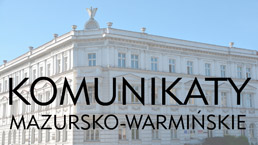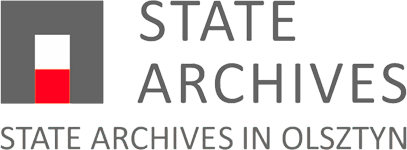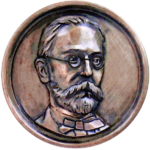Current issue
Online first
Special issues
Archive
About the Journal
Editorial Board
Editorial Council
Reviewers
Editorial guidelines
Publication ethics
Guidelines for reviewing
Remarks on “ghostwriting”
Copyrights and Open Access rule
GDPR Privacy Notice – for the authors of articles sent for publication in the "Komunikaty Mazursko-Warmińskie ("Masuro-Warmian Bulletin")
Contact
Price list
Education of German Lutheran elites at the turn of the 20th century based
on the example of Royal Gymnasium in Ełk
1
Uniwersytet Warmińsko-Mazurski w Olsztynie
Online publication date: 2021-06-16
Publication date: 2021-06-16
KMW 2021;311(1):34-51
KEYWORDS
TOPICS
ABSTRACT
This article is devoted to the education of elites in the German Empire at the turn of the 19th
century. The issue is presented based on the example of the alumni of the Royal Gymnasium
in Ełk. After the Napoleonic Wars, together with the reforms of Prussia, the awakening nationalism foreshadowed the end of Prussia as a multinational state as well as the birth of an
industrial society. In Ełk, a former provincial school was transformed into a Latin Gymnasium.
The school was expected to henceforth educate the elites of a modern state with its complex
administration and military, as well as to transmit one corpus of knowledge and a domineering
culture. The reports written by the headmasters of the Royal Gymnasium of Ełk in 1884–1910
suggest that its alumni mainly consisted of sons of the representatives of the middle and upper
class. Officials, clergy, representatives of liberal professions, military men, teachers and merchants coming from different parts of the German state educated their sons in the Gymnasium
in Ełk, passing on their social status to their descendants. The Royal Gymnasium of Ełk was
a kind of transmission medium of German culture, educating above all Lutheran and German
elites. Simultaneously, most Masurians were educated in the “German and Prussian spirit” by
the system of public schools. The age of steam and electricity was dominated by a belief that
people should be subjected to a cultural standardisation. The creation of a nation that would
be uniform in terms of culture was intended to be achieved by means of a centrally managed
system of education.
REFERENCES (27)
1.
Bogdan Danuta, Znaczenie szkół prowincjonalnych w Ełku i w Zalewie dla polskiego i niemieckiego elementu etnicznego w Prusach w XVI–XVIII wieku, w: Postawy oraz wzajemne stosunki grup etnicznych i narodowościowych na Mazurach (XIV–XX w.), red. G. Białuński, G. Jasiński, Giżycko 1999.
2.
Chrzanowski Tomasz, “Stipendium Masovianum” w Królewskim Gimnazjum w Ełku w drugiej połowie XIX wieku (1858–1914), „Komunikaty Mazursko-Warmińskie” 2011, nr 2 (272).
3.
Corvin Otto, Aus dem Leben eines Volkskämpfers. Erinnerungen von Corvin, Bd. 1, Gebrüder Binger, Amsterdam 1861.
4.
Dzierżek (Bahrke Karol), Wycieczka kolarza na Mazury Pruskie, Rubieszewski i Wrotnowski, Warszawa 1898.
5.
Frick David A., Polish Sacred Philology in the Reformation and the Counter-Reformation. Chapters into the History of the Controversies (1551–1632), Modern Philology, 1989, Vol. 123, University of California Publications.
6.
Gellner Ernst, Narody i nacjonalizm, tłum. T. Hołówka, Państwowy Instytut Wydawniczy, Warszawa 1991.
7.
Hampke Hermann, Jahresbericht des Königlichen Gymnasiums zu Lyck am Schlüsse des Schuljahres von Michaelis 1870 bis dahin 1871, Schellpressendruck von Rudolph Siebert in Lyck, Lyck 1871.
8.
Hartknoch Krzysztof, Altes Und Neues Preußen, In Verlegung Martin Hallervorden/Buchhändlern in Königsberg. Druckts Johann Andreae, Frankfurt–Lipsk 1684.
9.
Herder Johann Gottfried, Briefe zu Beförderung der Humanität, Johann Friedrich Hartknoch, Riga 1793.
10.
Jasiński Janusz, Michał Kajka 1858–1940, Mazurskie Towarzystwo Naukowe, Ełk 2008.
11.
Kammer Eduard, Bericht über die Feier des dreihundertjährigen Bestehens des Königlichen Gymnasiums zu Lyck, Hartung, Königsberg 1888.
12.
Kętrzyński Wojciech, O Mazurach (przedruk z redakcją z 1872), oprac. J. Jasiński, Pojezierze, Olsztyn 1968.
13.
Kossert Andreas, Mazury. Zapomniane południe Prus Wschodnich, Scholar, Warszawa 2004.
14.
Kossert Andreas, Prusy Wschodnie. Historia i mit, tłum. B. Ostrowska, Scholar, Warszawa 2009.
15.
Lackner, H. Lippold, Hensel Paul, w: Altpreußische Biographie, hrsg. F. Gause, Bd. 3, K. Forstreuter, N.G. Elwert Verlag, Marburg/Lahn 1974.
16.
Luh Jürgen, Die Zeit der Reformen, w: Preussen. Geschichte eines Mythos, hrsg. J.H. Schoeps, Weltbild, Berlin 2010.
18.
Marcinkiewicz Stefan Michał, Mityczna stolica Mazur. Między Ełkiem a Lyck, MHE, Ełk 2015.
19.
Moczarski Christel, Der Kreis Lyck. Ein ostpreußischer Wirtschaftsraum, Ferdinand Hirt in Breslau, Breslau 1938.
20.
Pletzing Christian, Vom Völkerfrühling zum nationalen Konflikt. Deutscher und polnischer Nationalismus in Ostund Westpreussen 1830–1871, Otto Hereassowitz Verlag, Wiesbaden 2003.
21.
Przyjaciel Ludu Łecki (ełcki). Roczniki 1842 i 1844 wraz z „Przydatkiem”, red. G. Jasiński, Ostróda 2010.
22.
Schulze Hagen, Państwo i naród w dziejach Europy, tłum. D. Lachowska, WUW, Warszawa 2012.
23.
Seidel Heinz, Dziengel Peter, Das Gymnasium zu Lyck (Ernst Moritz Arndt Schule) 1587–1987, Vereinigung Sängerkränzchen der Lycker Prima, 1830 und Sudavia, Hannover 1987.
24.
Sukertowa-Biedrawina Emilia, W obronie Michała Pogorzelskiego, „Komunikaty Mazursko-Warmińskie” 1957, nr 3.
25.
Szymański Adolf, Akademia Mazurska, w: Mazury – słownik stronniczy, ilustrowany, red. W. Mierzwa, Retman Baobab, Dąbrówno–Warszawa 2008.
26.
Töppen Max, Geschichte Masurens. Ein Beitrag zur preußischen Landes- und Kulturgeschichte, Verlag von Theodor Bertling, Danzig 1870.
27.
Weber Max, Etyka protestancka i duch kapitalizmu, tłum. D. Lachowska, WUW, Warszawa 2011.
Share
RELATED ARTICLE
We process personal data collected when visiting the website. The function of obtaining information about users and their behavior is carried out by voluntarily entered information in forms and saving cookies in end devices. Data, including cookies, are used to provide services, improve the user experience and to analyze the traffic in accordance with the Privacy policy. Data are also collected and processed by Google Analytics tool (more).
You can change cookies settings in your browser. Restricted use of cookies in the browser configuration may affect some functionalities of the website.
You can change cookies settings in your browser. Restricted use of cookies in the browser configuration may affect some functionalities of the website.




